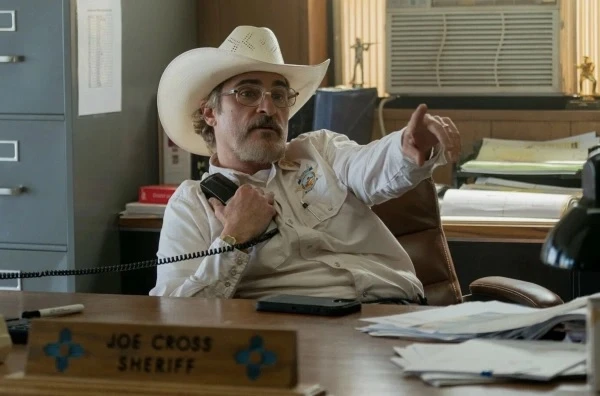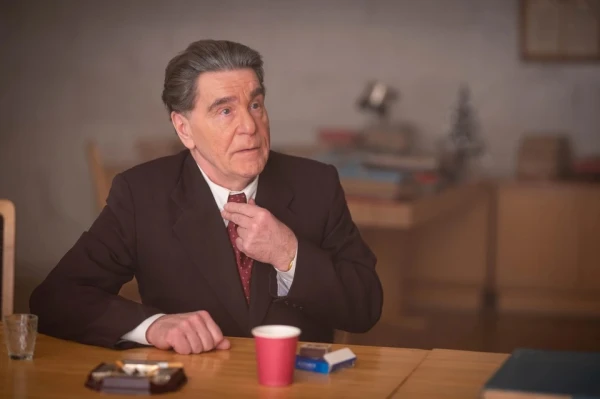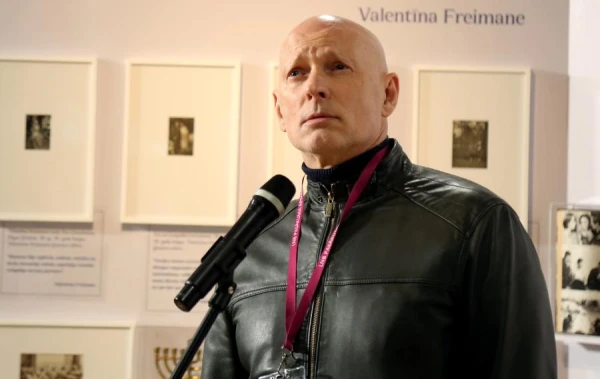
The film features a plot about BLM.
The new film by American director Ari Aster (39), 'Eddington,' premiered in May this year at the Cannes Film Festival. One of the most acclaimed horror filmmakers working under the A24 studio, this time he created a genre hybrid of neo-Western, thriller, and dark political satire, inspired by news that has yet to become history.
New Mexico, the last frontier. In the small town of Eddington, almost nothing has changed in the last 150 years: if you go right, you'll end up in an Indian reservation (where, in our enlightened age, they have their own governing bodies and police), if you turn left, before you lies empty, uncharted land as far as the eye can see. In Eddington itself, the streets are empty, doors are locked, and the population of just under two and a half thousand mostly stays at home: it is late May of COVID-19 2020. If it weren't for the rare cars and even rarer pedestrians, the town would resemble an abandoned movie set of a Western.
The main character of the film is also traditional for a Western — Sheriff Joe Cross (Joaquin Phoenix). However, he is nothing like the heroic lawmen portrayed in films by John Wayne or Gary Cooper. He is an insecure, cowardly, stuttering man who inherited his position from his late father-in-law.
Politically, Joe is more of a conservative, but in reality, he doesn't have any strong beliefs — he is one of those who "is not interested in politics" and is guided in life by traditional American values such as family, the Second Amendment, and a firm belief that no one can force a free citizen of a free country to wear a mask (especially if he has asthma, like Joe).
The anti-COVID measures irritate the sheriff even more because they are fully supported and enforced by Eddington's Mayor Ted Garcia (Pedro Pascal), who is preparing for re-election. He is a leading fighter for all that is good, including, for example, the rights of people of color, which in Eddington consists of about four people, including himself.
However, Ted's faith in progress is not entirely selfless: one of the main sponsors of his election campaign is a large IT corporation that wants to build a modern data center on the vacant lot outside Eddington. The mayor claims that this will bring development and new jobs to the city. His opponents, including Joe, argue that it will destroy it.
But primarily, Joe cannot stand Ted for deeply personal reasons: once, he dated Louise (Emma Stone), who later became the sheriff's wife, and he unceremoniously dumped her, causing her to fall into a prolonged depression. She has been in this state nearly twenty years later, making Joe's family life rather joyless. Moreover, during the pandemic restrictions, his mother-in-law (Deirdre O'Connell) moved in, never missing an opportunity to remind him how much better a sheriff and a real man his predecessor was. The rest of the time, she spends watching conspiracy videos online, which she also gets Louise hooked on.
The internet in 'Eddington' is one of the main characters and the driving force of the plot. We all remember the days of isolation filled with endless scrolling through news feeds and social media (this habit remained with humanity even when it became possible to leave the house).
Each character in the film lives glued to their screen: Ted posts his campaign videos, Joe watches videos on how to improve family relationships and about the 'real' origin of the coronavirus, Louise sinks deeper into the online black hole, falling under the influence of a self-proclaimed guru (Austin Butler) preaching the theory of an all-powerful pedophile conspiracy, while Eddington's youth picks up trendy progressive views on the situation in the country from TikTok.
It is on the internet that Joe strikes back at Ted, who publicly confronted him about his missing mask: to the horror of his wife and mother-in-law, he announces his decision to run for mayor as well.
The situation escalates, and then protests spill onto the streets of Eddington — from the internet — under the slogan 'Black Lives Matter.' Since there are hardly any Black people in the town, as mentioned, the protests are organized by white teenagers from well-off families, who constantly insist that they have no right to speak on behalf of the oppressed, yet do exactly that. These protests are generally peaceful, but the established order is not just cracking at the seams; it is beginning to fall apart.
This transformation of normality into its complete opposite is captured by Ari Aster, whose film, despite all the hyperbole characteristic of his style, at times resembles a documentary chronicle (however, if the social and political events of the last five years in the US and the rest of the world have proven anything, it is that any hyperbole pales and shrinks in comparison to reality).
In Eddington, as in a Petri dish, the same processes are brewing as outside its borders. The director's gaze, examining them under a microscope, is merciless: he gives no quarter to either the right or the left, showing the foolishness, moral impotence, and hypocrisy that thrive on all sides of the political spectrum. And at the same time, he is strangely empathetic: Joe, in all his absurdity and mossiness, even evokes sympathy for a time, as he is, in essence, a simple citizen caught in the vortex of universal madness.













